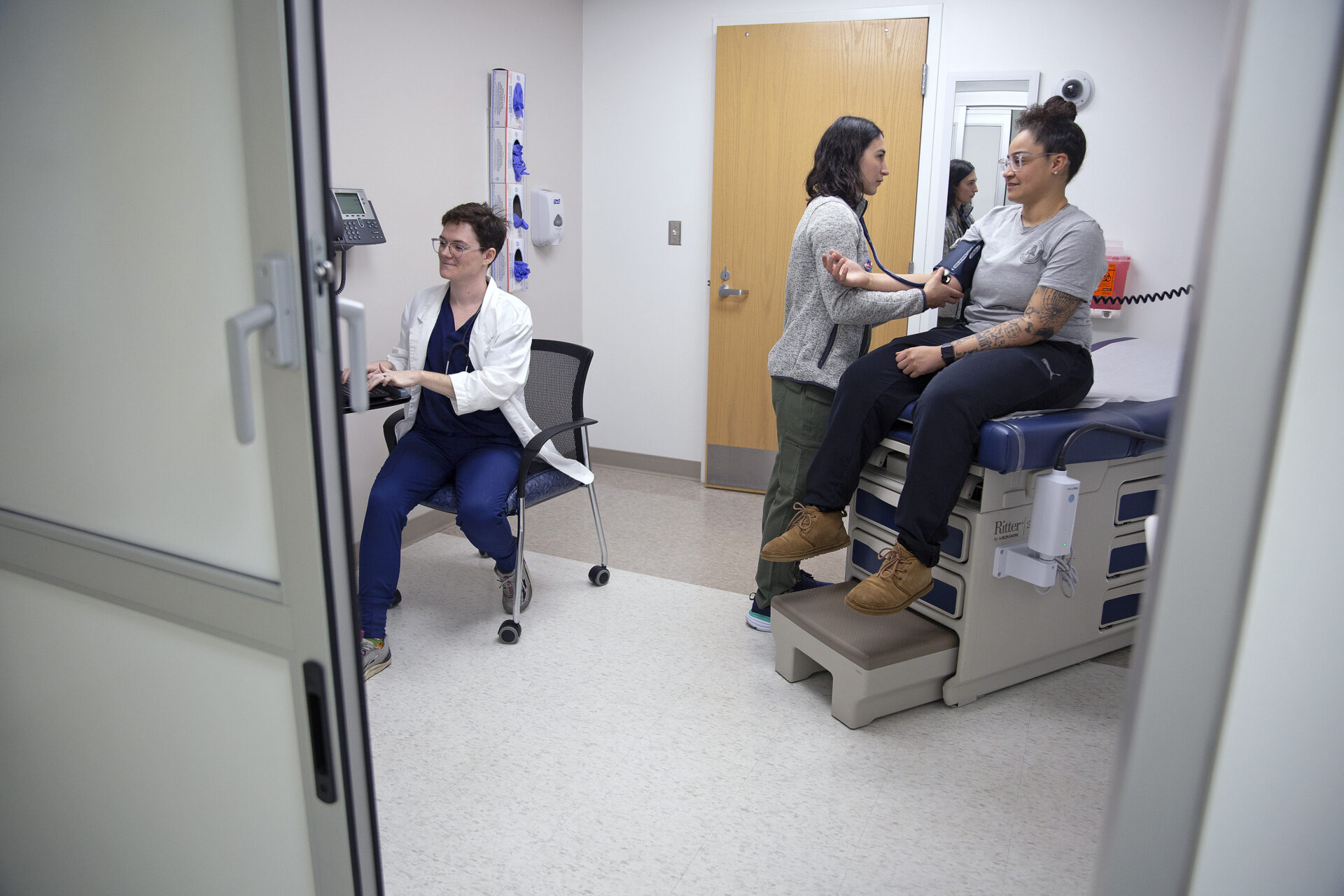Legislators who gathered for interim meetings Monday attended a panel discussion of health care research leaders. The West Virginia-based experts said the future of healthcare in the state is focused on a culture of innovation that has gone beyond theory.
They explained and demonstrated, with examples of real-time advanced medicine, that the West Virginia focus on a culture of health care innovation has the state becoming a world leader. One example was a literal “eye opener.”
Dr. Ali Rezai, executive chair for the WVU Rockefeller Neuroscience Institute, explained a preventive innovation in combating Dementia and Alzheimer’s involves a simple eye test patients can do in their eye doctor’s office. Rezai said the test provides a risk profile based on the eye scan. He said that profile can tell patients – with AI published studies – if they have a higher risk for neurodegenerative conditions.
“Many times you have 20 years of progression of protein accumulation in your brain for Alzheimer’s and Parkinson’s and you’re not aware of it,” Rezai said. “After 20 years of degeneration, then you start having a little twitching your finger or forgetting your way around more than usual, and that’s the 20-year opportunity waiting to detect disease.”
Rezai said results from that eye test could lead to patients making life modifications like stress reduction, diet, exercise and better sleep hygiene. He said these are simple things can change one’s risk of getting Alzheimer’s.
The researchers demonstrated, with numerous health care innovations, that replacing diagnosis and treatment with preventive health methods using technology and artificial intelligence improves public health.
Marshall University Joan C. Edwards School of Medicine Dean Dr. David Gozal explained the future of health has become proactive, using genetic technology to assess internal body functions, looking at the environment, and preventing health problems before they ever start.
“Unique elements that are now becoming the next generation of technology,” Gozal said. “Sensors that today can measure a variety of things in real time and communicate these to computers in real time from the home of the patient to the physician and vice versa. All to assess risk, to identify unique interventions and to actually intervene in real time without necessarily coming to the office or going to the hospital.”
Rezai said new technologies, AI — and in this case a new use of ultrasound — are making great strides right now in combating substance use disorder.
“If you’re somebody with an addiction, you show somebody shooting heroin, your craving goes way up and you become very anxious,” Rezai said. “So by increasing the cravings, then we can deliver ultrasound to the craving centers of the brain and shut it down and essentially reboot the brain and reset the brain.”
Asock Aggarwal, chief strategy officer with Intermed Labs said his company is helping West Virginia move to a health care world that is preventive, starting with an expectation of predictability and preventative maintenance.
“That is what we’re all accustomed to here in West Virginia,” Aggarwal said. “We all do preventative maintenance on our cars, on our tractors, on our coal mines, on our power plants. We need to do more preventative maintenance on our human bodies. We have an ability to address a lot of issues related to obesity, rural health, eldercare, addiction and addiction sciences, and all the mental health issues that are related to that. In each of these areas, we have the ability to implement AI and preventative care, to try to address these issues before someone goes on to have a heart attack, before someone goes on to have a psychosis.”
Panelist Dr. Connie Bormans is chief scientific officer with RGEN, a company focused on molecular genetics and DNA analysis. Bormans is also working to replace diagnosis with prevention. Her focus is on Cystic Fibrosis and other inherited disorders.
“We’re going to couples who want to have children,” Bormans said. “In an attempt to identify couples who are at risk of having children with these diseases and preventing it. By shifting to prevention, there’s a huge cost savings. As a private lab, one of our goals is to make genetic testing affordable for everyone, regardless of their insurance rate, regardless of if they have health insurance that will cover it. We want to drive down the costs. So anyone that wants to have a test can have a test. And by doing that, we’re going to prevent or remove a lot of these cases, a lot of these conditions from the population.”
All the panelists agreed the future of educating physicians must focus on working as medical teams, working in public-private collaborations and embracing a culture of innovation.
“We are not individual physicians anymore,” Gozal said. “We are a team of professionals that work together. This is the way that medicine will be practiced in the next several years, as we advance the technology, as we advance the ability to introduce these elements into the practice. I believe that West Virginia, by virtue of the panel that has been assembled here, and all of you, by your interest, will see that by the next generation of physicians that we will train at Marshall University, at West Virginia University and many other medical schools around the nation.”
